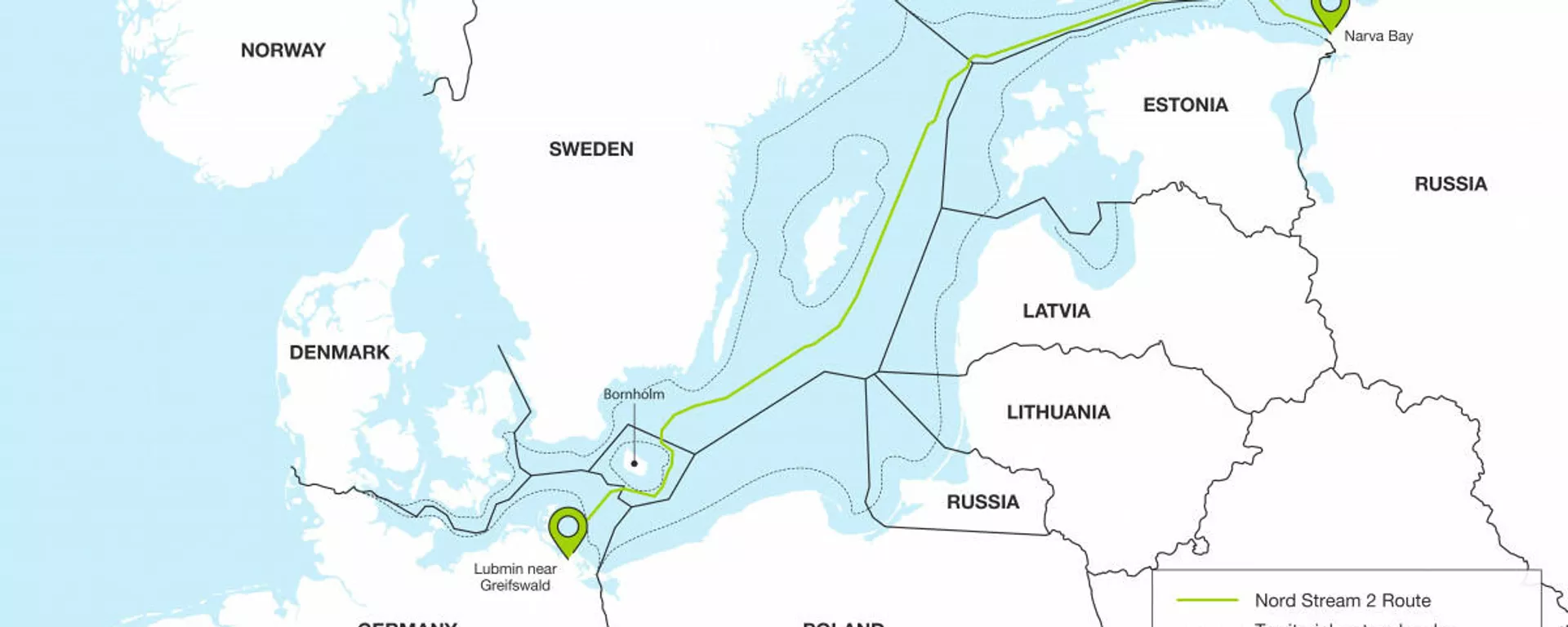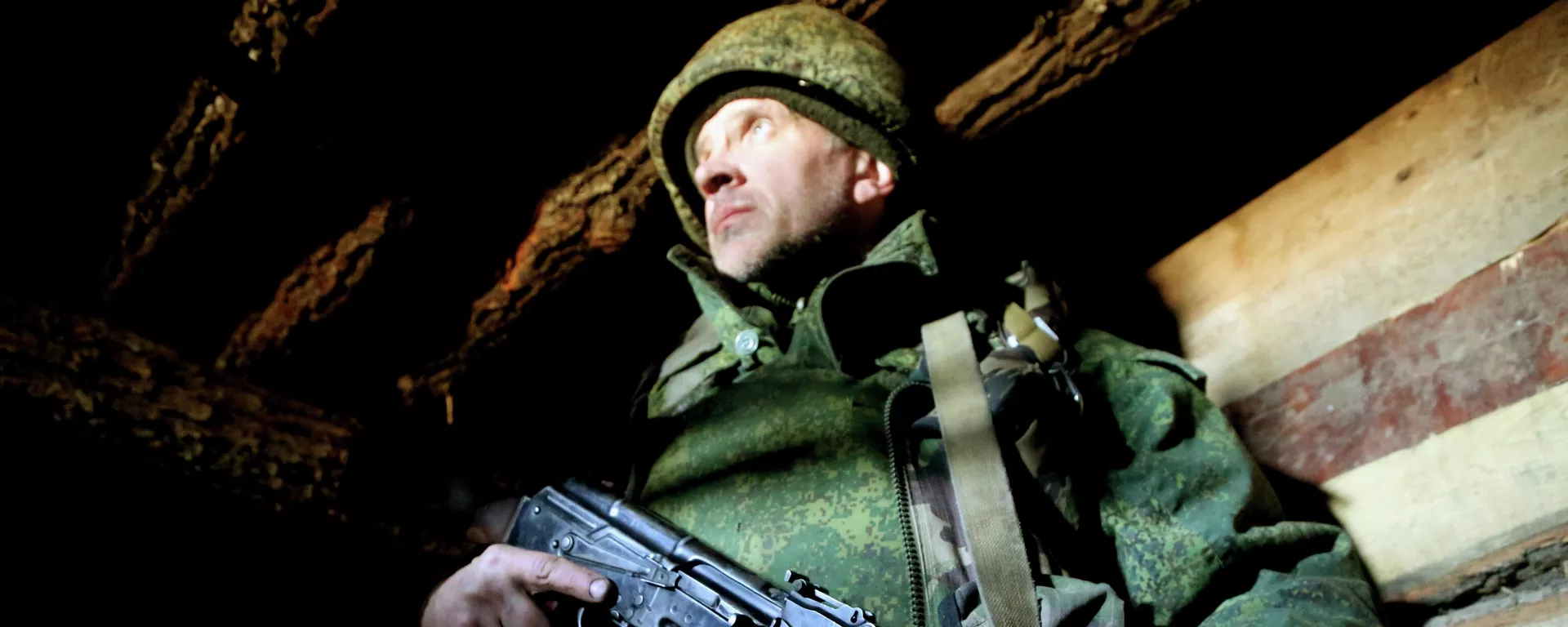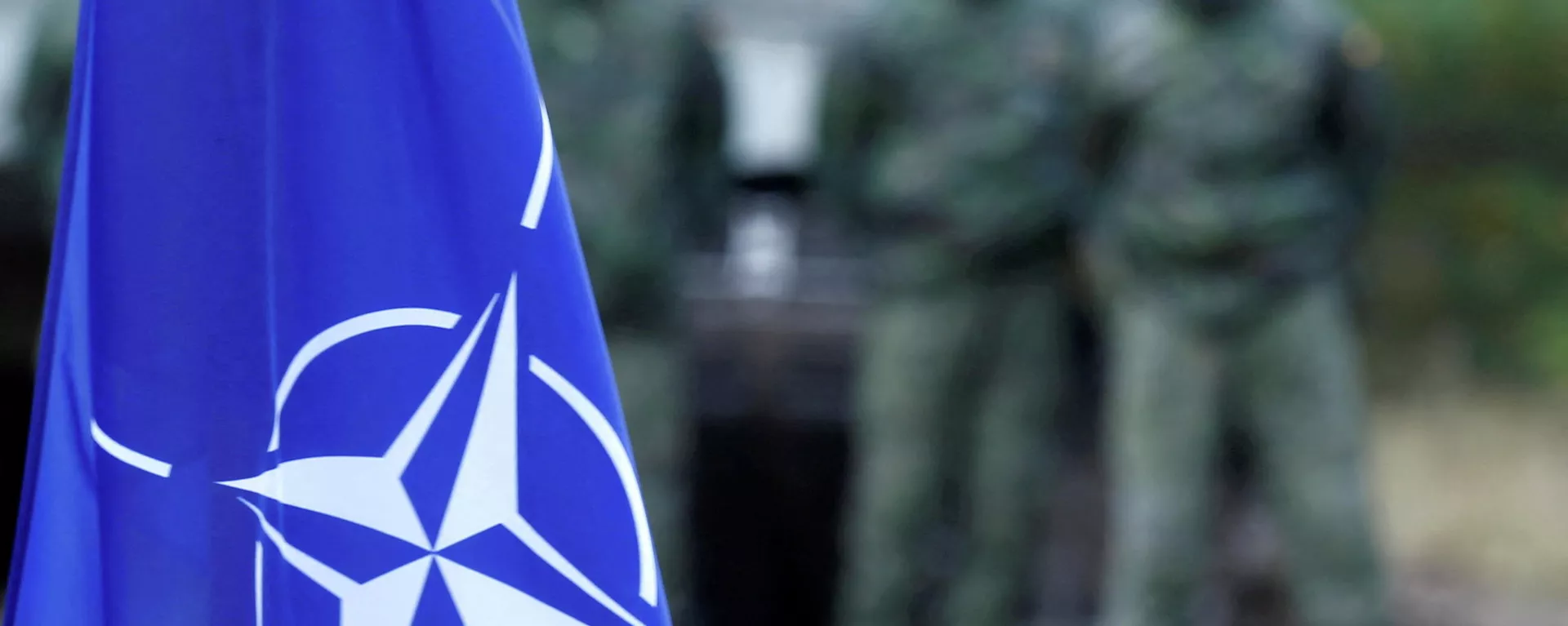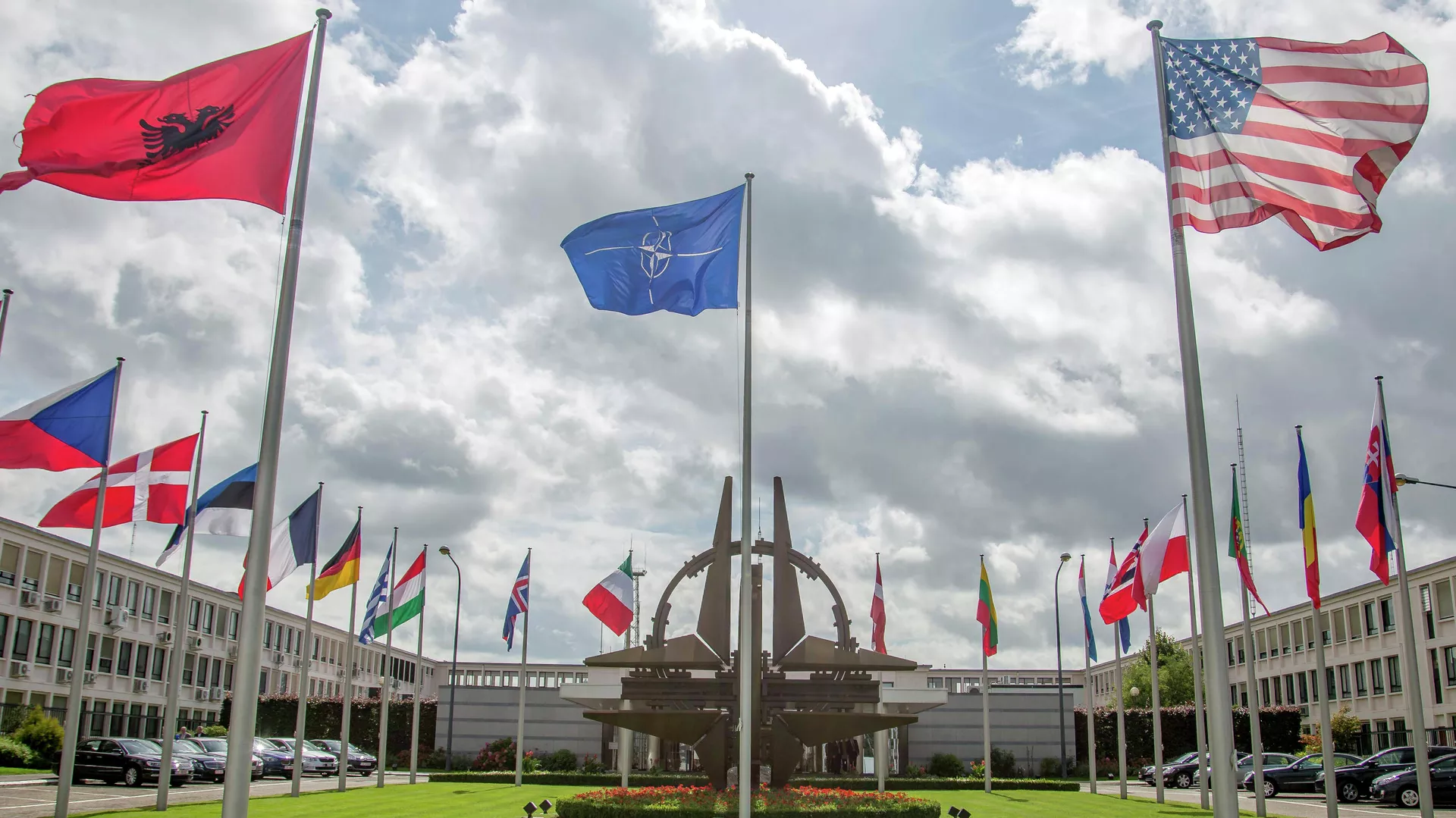https://sputnikglobe.com/20220219/ukraines-nato-membership-not-on-agenda-wont-happen-in-foreseeable-future-german-chancellor-says-1093172855.html
Ukraine's NATO Membership Not on Agenda, Won't Happen in Foreseeable Future, German Chancellor Says
Ukraine's NATO Membership Not on Agenda, Won't Happen in Foreseeable Future, German Chancellor Says
Sputnik International
Ukraine's ambassador to Germany has adamantly demanded membership in the Western alliance for his country, warning that Kiev may be forced to pursue nuclear... 19.02.2022, Sputnik International
2022-02-19T10:16+0000
2022-02-19T10:16+0000
2022-02-19T11:33+0000
ukraine
https://cdn1.img.sputnikglobe.com/img/07e6/01/0c/1092193700_66:0:3707:2048_1920x0_80_0_0_a393842b0e3fb7b55700cb5901ee1c1b.jpg.webp
Ukraine's bid for membership in the North Atlantic Treaty Organization is not on the agenda, and will not happen in the foreseeable future, German Chancellor Olaf Scholz has announced."We Europeans and the transatlantic community have warned Russia that military aggression against Ukraine would be a severe error, and we do not want this to happen," the chancellor added. Scholz suggested that the deployment of "well over 100,000 Russian soldiers" near the border with its Ukrainian neighbour has no justification.The German leader said the West was willing to talk with Russia about its security proposals, but that it would "of course make a clear distinction between untenable demands and legitimate security interests...The fundamental principles of the OSCE [Organisation for Security Co-operation in Europe] are non-negotiable for us. Russia has agreed to them, and they include the right to freely choose one's alliances. At the same there are questions of security that are important for both sides, first and foremost transparency around weapons systems and exercises, risk mitigation mechanisms and new approaches to arms control," he said.Commenting on his visit to Moscow for talks with President Vladimir Putin last Tuesday, Scholz said he had made it "clear" to his Russian counterpart that "any further violation of the territorial integrity of Ukraine would have a high price for Russia, in political economic and geostrategic terms." Scholz also insisted that Berlin and its allies remain committed to diplomacy, both on the Ukraine crisis and on European security in general. The chancellor expressed special gratitude to Ukrainian President Volodymyr Zelensky for his supposed "commitment" to the Minsk Agreements aimed at restoring peace to eastern Ukraine.War of WordsScholz's comments come amid a dramatic escalation of tensions in the Donbass, with the self-proclaimed republics of Donetsk and Lugansk mobilising militia units and announcing an evacuation of the civilian population amid mass shelling by Kiev forces and fears that Ukraine is preparing to launch an all-out offensive.On Friday, Russian officials including President Putin and Foreign Minister Sergei Lavrov expressed "alarm" about the situation in the Donbass, and called on Kiev to immediately sit down to negotiations with the Donbass breakaways to implement the Minsk Agreements.Kiev's renewed aggression in the Donbass comes after months of now-debunked claims by Western officials and media that Russia is preparing to "invade Ukraine," and warnings by Moscow that NATO would use the "invasion" claims to justify a further buildup of troops and military equipment on Russia's doorstep.In December, in a bid to ease regional tensions and reverse the deterioration of relations with NATO, the Russian Foreign Ministry published a pair of security proposals calling on NATO to halt its eastward expansion, and for both sides to limit troop, missile, warship and aircraft deployments in areas where they could be perceived a threat by the other party. Moscow also asked NATO to limit the deployment of troops and weapons systems, including missiles, in Eastern European countries which joined NATO after the end of the Cold War.The Western alliance rejected Russia's proposals, saying that its 'open door' policy for joining will remain in place, and rejecting limitations on military deployments in Eastern Europe. The United States sent 5,000 additional troops to Poland, and redeployed 1,000 troops from Germany to Romania, and has threatened to send additional troops to Europe at a moment's notice, if necessary.Western officials regularly cite OSCE agreements signed in 1999 and 2010 regarding the freedom of member nations to join whatever security alliance they like. In an interview with Sputnik last month, Foreign Minister Lavrov said that Russia takes a broader, more comprehensive view of these treaties to include the principle of the indivisibility of security.Russia's firm insistence on halting NATO's expansion via formal treaties comes in the wake of built up feelings of animosity over the West's broken promises not to expand east following the end of the Cold War. In 1990, US Secretary of State James Baker explicitly promised then-Soviet leader Mikhail Gorbachev not to expand the bloc "one inch east" of a reunified Germany. Since then, NATO has incorporated every single member of the former Moscow-led Warsaw Pact bloc, three republics of the former USSR itself, and four republics of the ex-Yugoslavia. On top of this, the US has built components of a missile defence system in Poland and Romania. Moscow has expressed fears that these installations can easily be converted to fire offensive, nuclear-tipped Tomahawk cruise missiles deep into Russia with almost no warning time.
https://sputnikglobe.com/20220218/germany-ready-to-pay-high-price-if-russia-invades-ukraine-including-end-to-nord-stream-2-fm-says-1093155153.html
https://sputnikglobe.com/20220219/live-updates-ukrainian-forces-again-fire-mortars-prohibited-by-minsk-agreements-dpr-says-1093165740.html
https://sputnikglobe.com/20220219/1991-doc-proves-west-did-commit-to-non-expansion-of-nato-eastwards-broke-the-promise--report-1093161024.html
ukraine
Sputnik International
feedback@sputniknews.com
+74956456601
MIA „Rossiya Segodnya“
2022
News
en_EN
Sputnik International
feedback@sputniknews.com
+74956456601
MIA „Rossiya Segodnya“
Sputnik International
feedback@sputniknews.com
+74956456601
MIA „Rossiya Segodnya“
ukraine
Ukraine's NATO Membership Not on Agenda, Won't Happen in Foreseeable Future, German Chancellor Says
10:16 GMT 19.02.2022 (Updated: 11:33 GMT 19.02.2022) Ukraine's ambassador to Germany has adamantly demanded membership in the Western alliance for his country, warning that Kiev may be forced to pursue nuclear weapons if its membership bid is declined. Last week, German media reported that officials in Berlin were consciously avoiding the "pain in the a**" diplomat over his "undiplomatic contact."
Ukraine's bid for membership in the North Atlantic Treaty Organization is not on the agenda, and will not happen in the foreseeable future, German Chancellor Olaf Scholz has announced.
"Russia has made the issue of Ukraine's possible NATO membership a casus belli, which is paradoxical because there is no decision on this on the agenda," Scholz
said, speaking at the Munich Security Conference on Saturday.
"We Europeans and the transatlantic community have warned Russia that military aggression against Ukraine would be a severe error, and we do not want this to happen," the chancellor added. Scholz suggested that the deployment of "well over 100,000 Russian soldiers" near the border with its Ukrainian neighbour has no justification.
The German leader said the West was willing to talk with Russia about its security proposals, but that it would "of course make a clear distinction between untenable demands and legitimate security interests...The fundamental principles of the OSCE [Organisation for Security Co-operation in Europe] are non-negotiable for us. Russia has agreed to them, and they include the right to freely choose one's alliances. At the same there are questions of security that are important for both sides, first and foremost transparency around weapons systems and exercises, risk mitigation mechanisms and new approaches to arms control," he said.
Commenting on his visit to Moscow for talks with President Vladimir Putin last Tuesday, Scholz said he had made it "clear" to his Russian counterpart that "any further violation of the territorial integrity of Ukraine would have a high price for Russia, in political economic and geostrategic terms."
Scholz also insisted that Berlin and its allies remain committed to diplomacy, both on the Ukraine crisis and on European security in general. The chancellor expressed special gratitude to Ukrainian President Volodymyr Zelensky for his supposed "commitment" to the Minsk Agreements aimed at restoring peace to eastern Ukraine.

18 February 2022, 19:08 GMT
Scholz's comments come amid a dramatic escalation of tensions in the Donbass, with the self-proclaimed republics of Donetsk and Lugansk mobilising militia units and announcing an evacuation of the civilian population amid mass shelling by Kiev forces and fears that Ukraine is preparing to launch an all-out offensive.
On Friday, Russian officials including President Putin and Foreign Minister Sergei Lavrov expressed "alarm" about the situation in the Donbass, and called on Kiev to immediately sit down to negotiations with the Donbass breakaways to implement the Minsk Agreements.

19 February 2022, 04:50 GMT
Kiev's renewed aggression in the Donbass comes after months of now-debunked claims by Western officials and media that Russia is preparing to "invade Ukraine," and warnings by Moscow that NATO would use the "invasion" claims to justify a further buildup of troops and military equipment on Russia's doorstep.
In December, in a bid to ease regional tensions and reverse the deterioration of relations with NATO, the Russian Foreign Ministry published a pair of security proposals calling on NATO to halt its eastward expansion, and for both sides to limit troop, missile, warship and aircraft deployments in areas where they could be perceived a threat by the other party. Moscow also asked NATO to limit the deployment of troops and weapons systems, including missiles, in Eastern European countries which joined NATO after the end of the Cold War.
The Western alliance rejected Russia's proposals, saying that its 'open door' policy for joining will remain in place, and rejecting limitations on military deployments in Eastern Europe. The United States sent 5,000 additional troops to Poland, and redeployed 1,000 troops from Germany to Romania, and has threatened to send additional troops to Europe at a moment's notice, if necessary.
Western officials regularly cite OSCE agreements signed in 1999 and 2010 regarding the freedom of member nations to join whatever security alliance they like. In an
interview with Sputnik last month, Foreign Minister Lavrov said that Russia takes a broader, more comprehensive view of these treaties to include the principle of the indivisibility of security.
"The West pulls out only one phrase from this package - that 'each country has the right to choose its allies, to choose its military alliances', but there is also a right stipulating the obligation of each country not to strengthen its security at the expense of the security of others. The West, in its incantations about the sacrality of NATO's 'open-door' policy, and statements that no one can forbid Ukraine from joining NATO, just deliberately and overtly avoids even referring to this second part of these obligations," Lavrov said.
Russia's firm insistence on halting NATO's expansion via formal treaties comes in the wake of built up feelings of animosity over the West's broken promises not to expand east following the end of the Cold War. In 1990, US Secretary of State James Baker explicitly promised then-Soviet leader Mikhail Gorbachev not to expand the bloc "one inch east" of a reunified Germany. Since then, NATO has incorporated every single member of the former Moscow-led Warsaw Pact bloc, three republics of the former USSR itself, and four republics of the ex-Yugoslavia. On top of this, the US has built components of a missile defence system in Poland and Romania. Moscow has expressed fears that these installations can easily be converted to fire offensive, nuclear-tipped Tomahawk cruise missiles deep into Russia with almost no warning time.

19 February 2022, 01:56 GMT




